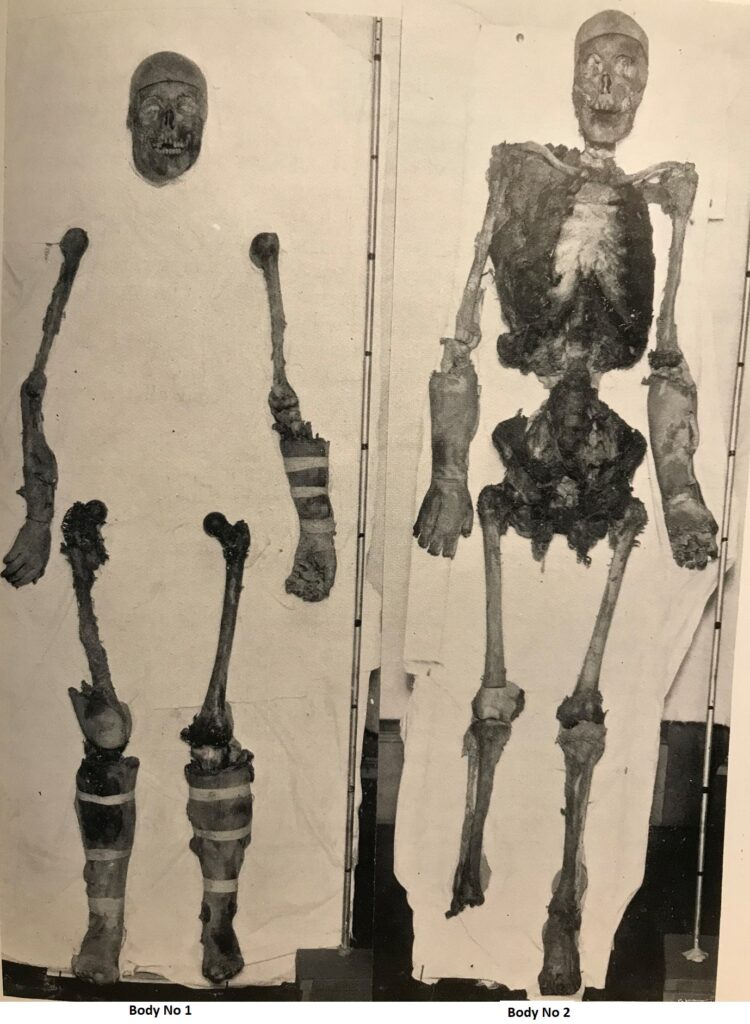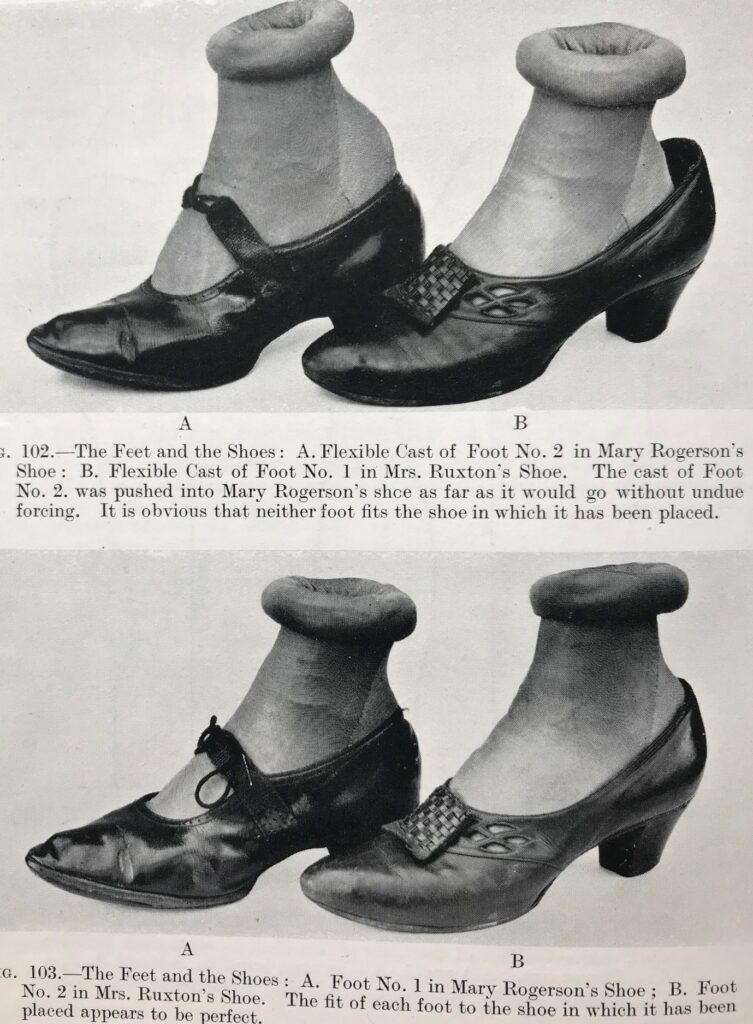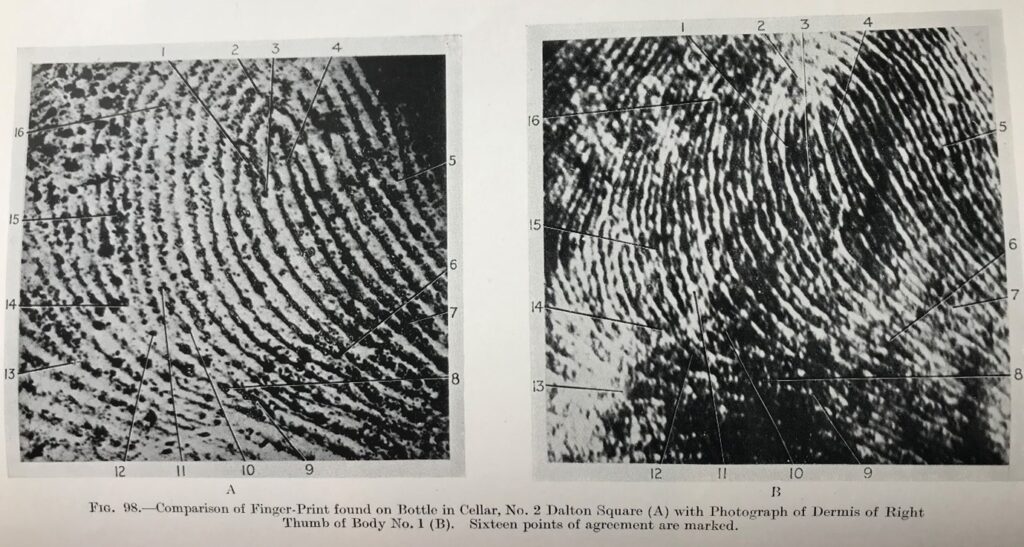The 70 body parts, eventually recovered from Gardenholm Linn, reconstructed by Professor Brash.

Casts were made of the feet of both bodies and then placed in Isabella’s and Mary’s shoes, found at Dalton Square.

The finger tips of Body No.1 were intact and although the epidermis had deteriorated, it proved possible to take prints from the lower dermis level. The later discovery of a forearm (4th November) enabled further prints, including a palm print. These were matched against ‘chance’ prints found inside 2 Dalton Square.

The fingertips of Body No. 2 had been removed
These were ground-breaking techniques. J. Edgar Hoover (FBI) described this use of chance fingerprints as ‘unique’. And after the Trial, the News of the World noted that Bertie Hammond’s work “. …would go down in police records as among the most remarkable ever achieved by a fingerprint man.”



